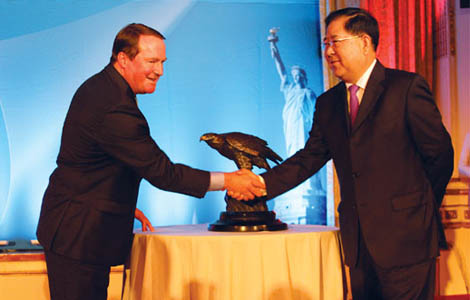Troublemaking not in UK's interests
Updated: 2014-08-08 08:18
By Zhou Bajun (China Daily USA)
|
||||||||
It would only be shooting itself in the foot if it tries to derail the constitutional development in the Special Administrative Region
The United Kingdom's Parliament Foreign Affairs Committee is expected to conclude its inquiry into Britain's relations with Hong Kong in October. The committee said in a press release on July 22: "As co-signatory of the Joint Declaration, the UK retains an enduring commitment to Hong Kong following the transfer of sovereignty in 1997".
The committee said that the UK has strong, long-standing links with Hong Kong, and it enjoys regular exchanges with the city on policy issues "including global economic development, climate change, financial services regulation, legal and judicial cooperation, and religious and social development".
It noted two interrelated issues for its inquiry. One is "the UK's position regarding progress on political and constitutional reform in Hong Kong as it moves toward universal suffrage, taking note of the wider context of social and economic development in Hong Kong", and the other is "the UK's presence and its ongoing interests in Hong Kong, including the prospects for trade, business, and cultural exchange".
This means the UK is trying to strike a a balance between asserting itself over Hong Kong's constitutional reforms and maintaining its long-term economic interests in the city. But it is important that the UK remembers Hong Kong is now a special administrative region of China, and handles its bilateral relationship with China with the utmost care in this regard.
When Chris Patten, the last British governor of Hong Kong, recently went out of his way to praise Hong Kong's opposition camp in interviews and articles, 10 Downing Street sensibly chose to remain silent.
Nevertheless, in a free society with different political parties, British politicians have always held different opinions on various issues including foreign affairs. The current UK government is a coalition. Its Deputy Prime Minister Nick Clegg, leader of the Liberal Democrats, recently criticized Prime Minister David Cameron, leader of the Conservative Party, for failing to back Hong Kong's opposition demands for "genuine universal suffrage".
In the British media, there are also voices supporting Hong Kong's opposition politicians.
The Economist, an influential weekly magazine, accused Britain of betraying Hong Kong in its July 19 editorial. It argued that it was time for Britain to rediscover its moral compass and confront China over Hong Kong. In keeping with the current Western intellectual tradition of emphasizing political correctness over economic and other issues, the editorial gave a rather negative assessment of Premier Li Keqiang's recent visit to Britain, where Beijing and London signed trade and business deals worth 14 billion pounds ($24 billion). "The consequences of that pact are now becoming clear," the editorial asserted. "This month the British foreign secretary issued the latest of his twice-yearly reports on Hong Kong. He noted that some in Hong Kong had said that the white paper threatened the city's autonomy. But it did not contain a word of criticism for the document itself, nor for the government in Beijing."
All those comments and criticisms are completely wrong. Firstly, they are based on the false assumption that Beijing is reneging on the promise of "One Country, Two Systems". The white paper on the implementation of the "One Country, Two Systems" policy in Hong Kong clearly outlined the basic guidelines for the HKSAR. Chairman of the National People's Congress Standing Committee Zhang Dejiang reaffirmed this in Shenzhen at a meeting with Chief Executive Leung Chun-ying on July 19. Zhang said that the central government would resolutely maintain these policies for Hong Kong.
Secondly, it is in the UK's best interests that Hong Kong's constitutional reform progresses in accordance with the Basic Law and the NPCSC's decisions. For example, two of Hong Kong's main issuers of bank notes, HSBC and Standard Chartered Bank, are controlled by British stakeholders. If Central - Hong Kong's international finance hub - is paralyzed by protests orchestrated by Occupy Central, British interests will likely be hurt. If the SAR's financial operations were seriously disrupted its economy could be affected for months - if not years. British businesses in Hong Kong - whose total investments in the SAR are second only to their local Chinese counterparts' - would suffer huge, potentially fatal, losses.
Moreover, if the UK were to meddle in Hong Kong affairs by supporting attempts to derail the SAR's constitutional development, its relationship with China would be the first to deteriorate. Two years ago, David Cameron received the Dalai Lama in London. In response, Beijing shut its doors to British government leaders and business until later in 2013, when Cameron visited China. The UK understands that mutual respect is the first step toward lasting economic cooperation and growing Sino-British bilateral trade.
The author is a veteran current affairs commentator.
(China Daily USA 08/08/2014 page16)
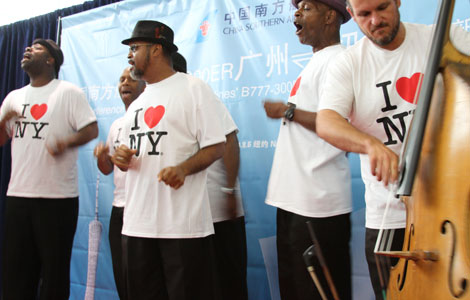
 Will Chinese tourists 'heart' New York too?
Will Chinese tourists 'heart' New York too?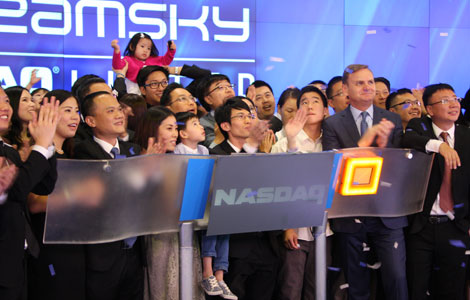
 Mobile gamer iDream Sky raises $115m in IPO
Mobile gamer iDream Sky raises $115m in IPO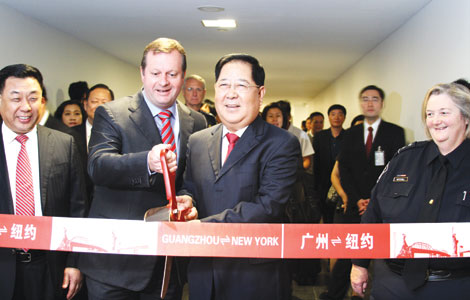
 China Southern launches Guangzhou-New York service
China Southern launches Guangzhou-New York service
 Chinese cadets' numbers rise in US military academies
Chinese cadets' numbers rise in US military academies
 US funded Chinese fashion website targets a new customer segment
US funded Chinese fashion website targets a new customer segment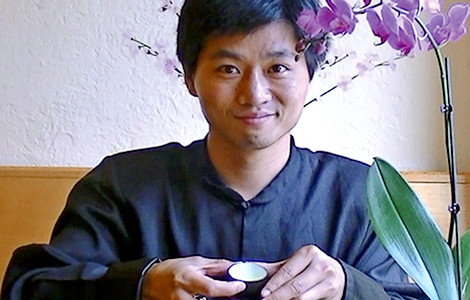
 'Dr Tea' takes on the US
'Dr Tea' takes on the US
 NYC spurs small business
NYC spurs small business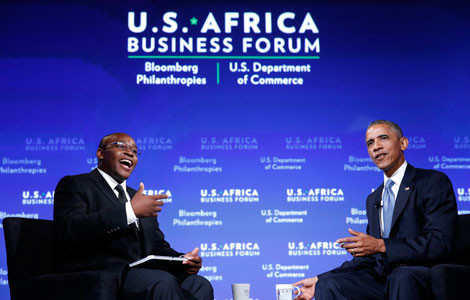
 US-Africa summit starts with development fora
US-Africa summit starts with development fora
Most Viewed
Editor's Picks

|

|

|

|

|

|
Today's Top News
Pandas find friend in World Peace
Obama authorizes targeted airstrikes in Iraq
New Guangzhou-NYC flight 'a gift'
China's mobile gamer lists at Nasdaq
Will Chinese tourists 'heart' New York too?
Hagel in New Delhi to expand defense ties with India
Scale of Ebola crisis 'unprecedented'
Compromise called for in Sino-US ties
US Weekly

|

|
